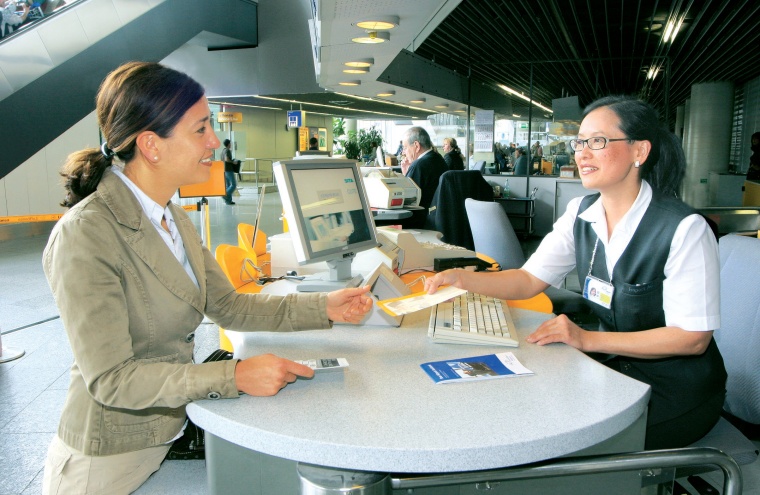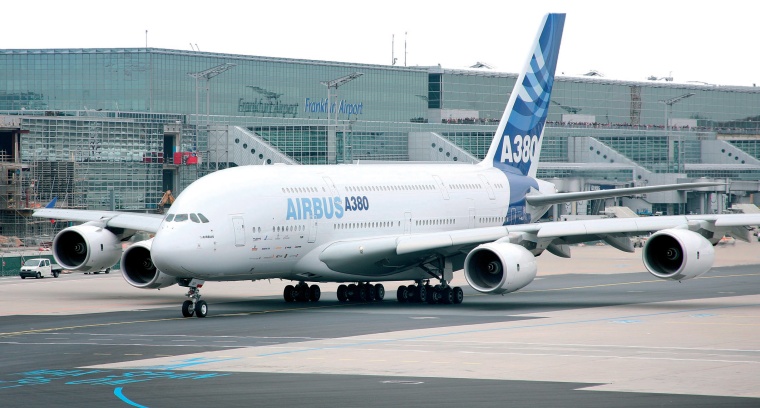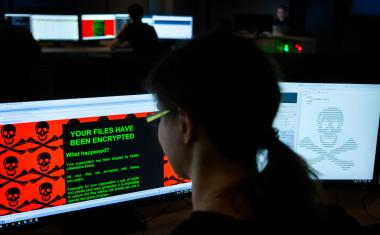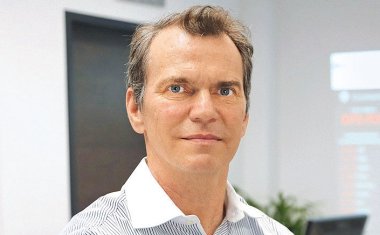Fujitsu Siemens Computers: reliable check-in at Frankfurt airport
Fujitsu Siemens Computers: reliable check-in at Frankfurt airport. According to a current prediction by Boeing, annual world-wide passenger traffic will grow an average of 4.9% unt...


Fujitsu Siemens Computers: reliable check-in at Frankfurt airport. According to a current prediction by Boeing, annual world-wide passenger traffic will grow an average of 4.9% until 2025. The check-in time has to be reduced to prevent airport terminal congestion, and IT that runs smoothly is thus indispensable. To attain this goal, Germany’s largest airport relies on the expertise of external service providers. In Frankfurt, fail-safe hardware and software and an efficient check-in is ensured by Société Internationale de Télécommunications Aéronautiques (SITA), the market leader for airport IT and communication solutions, and Fujitsu Siemens Computers.
150,000 passengers are checked in at Frankfurt airport on an average day, about 53 million people last year. Technology that works is a prerequisite to punctual take-offs and landings, and not just as far as air traffic is concerned. If the passenger check-in does not proceed smoothly, airplanes do not leave the ground in time. The backbone for this is provided by complex IT and communication processes, which control the data flow between airlines, airports and passenger terminals.
SITA supports almost 1,500 check-in terminals and ensures smooth IT processes at Frankfurt Airport. It has subcontracted all the hardware services and the check-in device support as a managed service to Fujitsu Siemens Computers. The IT experts are responsible for the entire lifecycle of the hardware, from the initial installation of the software, the rollout of new devices and elimination of faults right through to the disposal of old devices.
To ensure that the operation is not affected by hardware failures, SITA has drawn up demanding Service Level Agreements (SLAs) for its IT service provider. They restrict the number of faults and downtimes to a minimum. Fast restore times ensure that efficient check-in handling is guaranteed: A hardware fault is generally eliminated within 30 minutes.
Reliable Access to Host System and Peripherals
The hardware consists of Common Use Terminal Equipment (CUTE) terminals and connected peripheral devices, such as printers for boarding cards, baggage labels and ticket readers at the passenger gates. CUTE terminals are PC workstations that have been equipped with special software. The SITA communications system enables every airline and airport employee to access their own host systems and use their own applications for check-in and boarding. They can login at each airport CUTE workstation in the check-in or gate area and use the peripherals installed.
“Hardware service is not part of our core competence. We prefer the situation where we can cooperate at an airport with a reliable partner who can ensure high-quality services and meet demanding service levels,” says Jens Lauterbach, Senior Manager Supplier Contracts and SLAs with SITA.
Act Before a Fault Occurs
To keep the number of faults as low as possible, the service provider carries out so-called preventive maintenance at regular intervals. Service engineers inspect the devices on-site and perform any cleaning or repair work necessary during the night when flying is prohibited, thereby considerably reducing hardware downtimes. This method combined with efficient restore processes allows the SLAs agreed with SITA to be regularly exceeded.
Fujitsu Siemens Computers is responsible not only for eliminating the faults but also for all the IMAC (Installation, Move, Add, Change) services. In other words, they are responsible for installing and replacing the devices as well as for the rollout of new components and upgrades. The service provider also handles inventory management and the disposal of old equipment.
Trust - Yes, Finger Pointing – No
SITA operates its own service hotline for the administration of the communications software. Both the airport and the airlines have their own user help desks. However, the service employees from Fujitsu Siemens Computers are on-site. Eliminating faults demands cooperation from all involved: When a fault is reported by the user, the Help Desk calls several service engineers simultaneously.
The one closest to the defective hardware is given the responsibility for the recovery and for logging off the job. All information, starting with the call itself right through to the call closure, is sent in real time to a central database which is accessed by the service engineer, Help Desk, administrators and repair workshops. Thus SITA receives a real-time report, detailing when the hardware was operating again and how long the repair took.
Close cooperation between the two companies requires trust. „The technical know-how is only part of the project success. The interface between hardware and software in particular requires good cooperation as it is a matter of eliminating the error together and not apportioning blame. This will only work with a wellestablished team where those involved always aim for result,“ says Jens Lauterbach from SITA.
He is satisfied with the service and has just renewed the contract with Fujitsu Siemens Computers for another three years.
Ulf Diestel,
Fujitsu Siemens Computers
Contact:
Frank Rudolf
Fujitsu Siemens Computers,
Munich, Germany
Tel.: +49 89 620 604 456
frank.rudolf@fujitsu-siemens.com
www.fujitsu-siemens.com
most read

Airbus Defence and Space: Security as a strategic pillar of Europe's defense capability
Airbus Defence and Space protects sites, technologies and employees with modern security and cyber solutions - strengthening Europe's resilience in uncertain times

Assa Abloy's battery-powered Aperio KL100 secures lockers
Boost workplace security and operational flexibility by securing more than just doors.

Training at Fraunhofer SIT: Strengthening resilience against cyber attacks
Knowledge in cyber security is evolving rapidly - continuous training is therefore important.

Integrated and Futureproof: Traka’s Next Chapter
Interview with Stefni Oliver on Traka’s Vision for the Future









